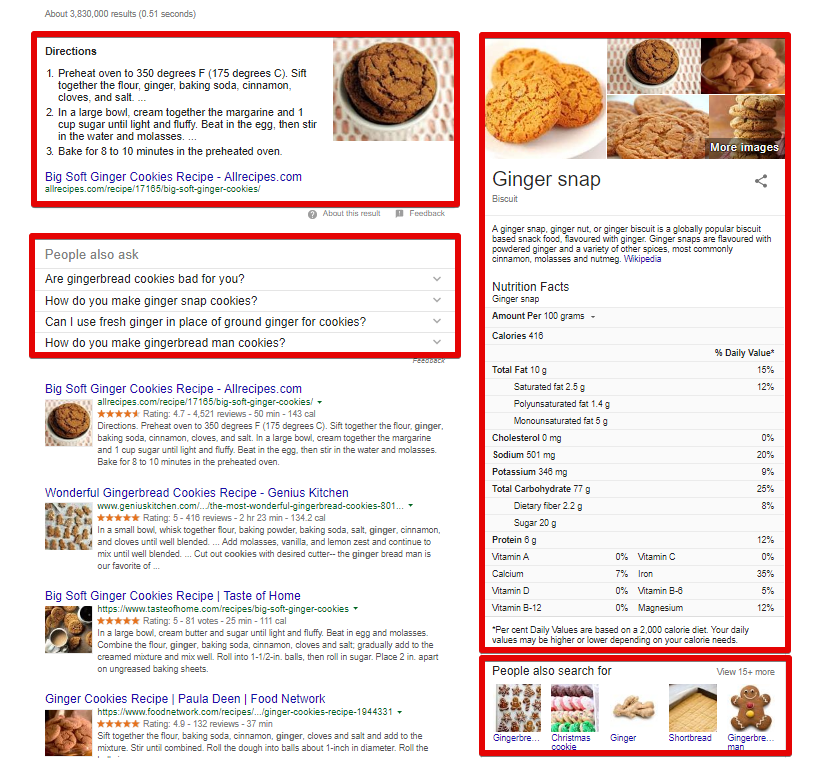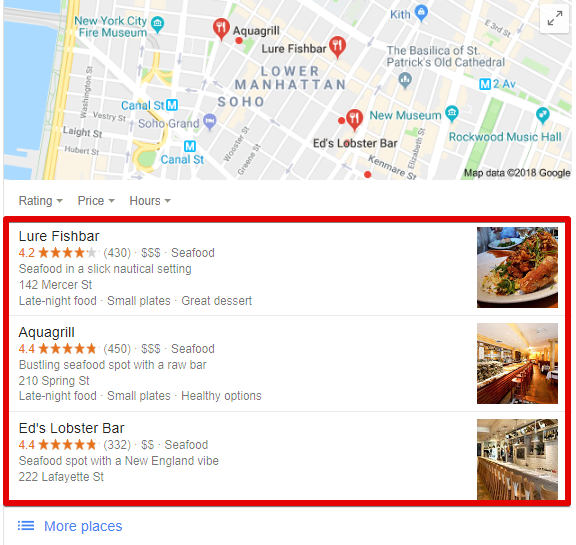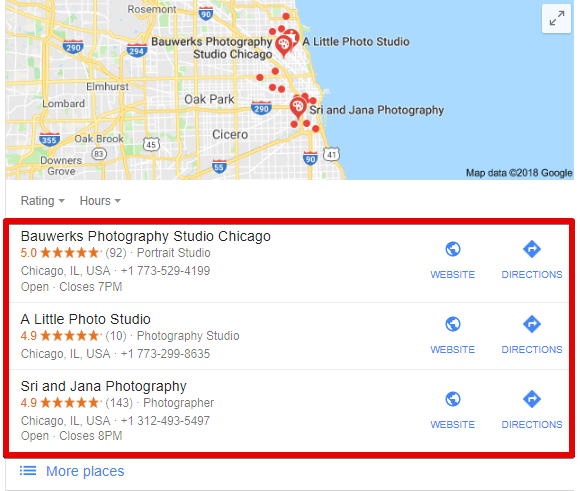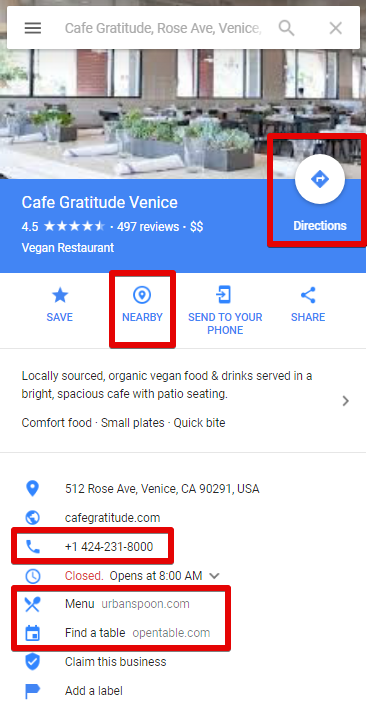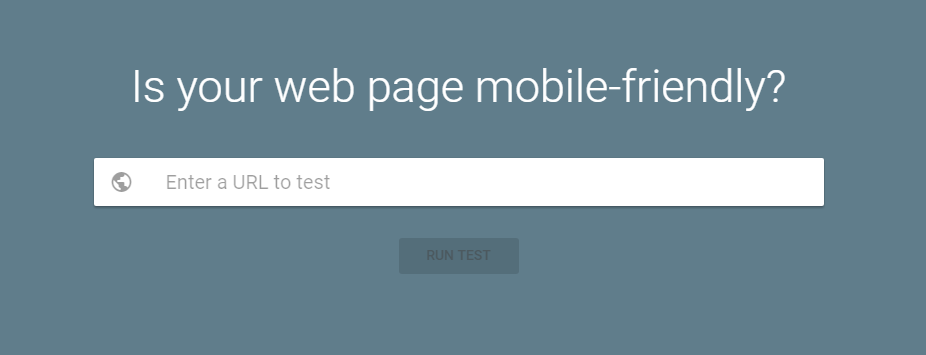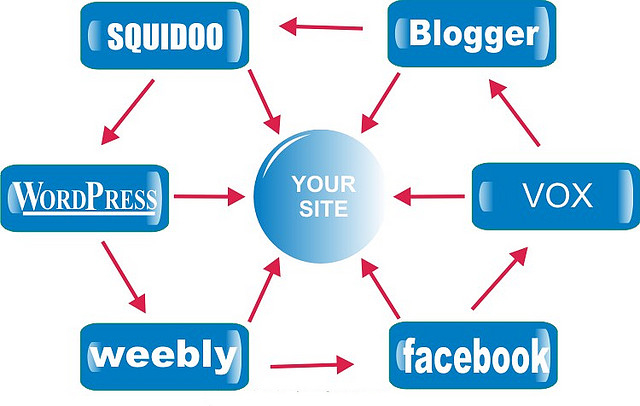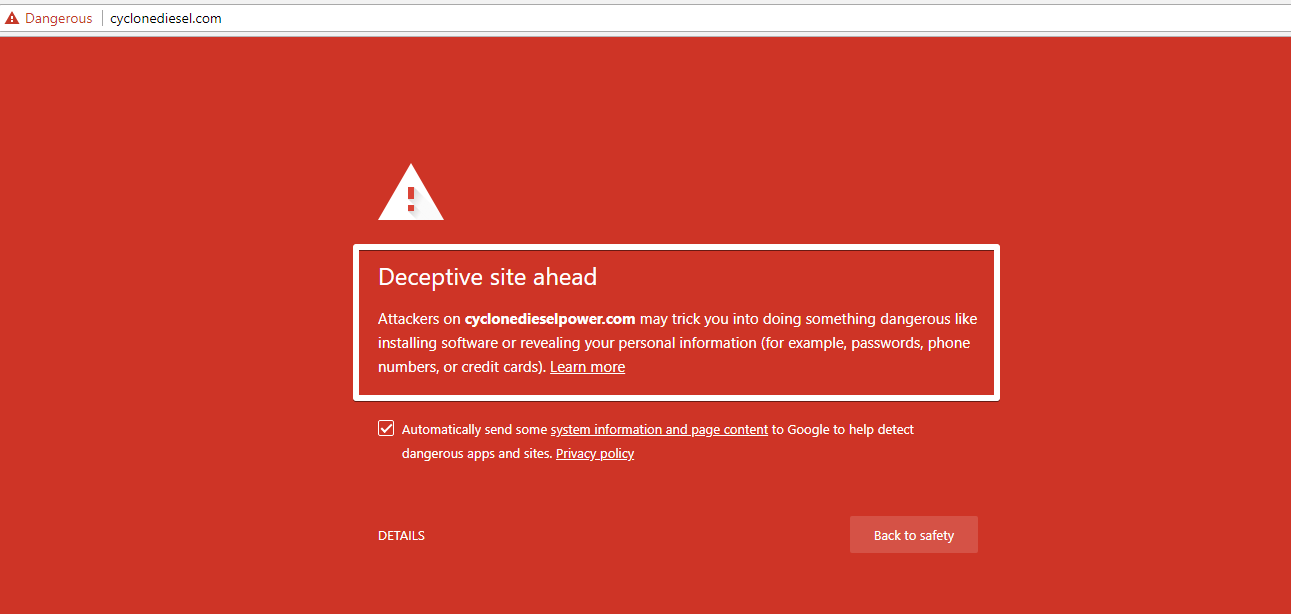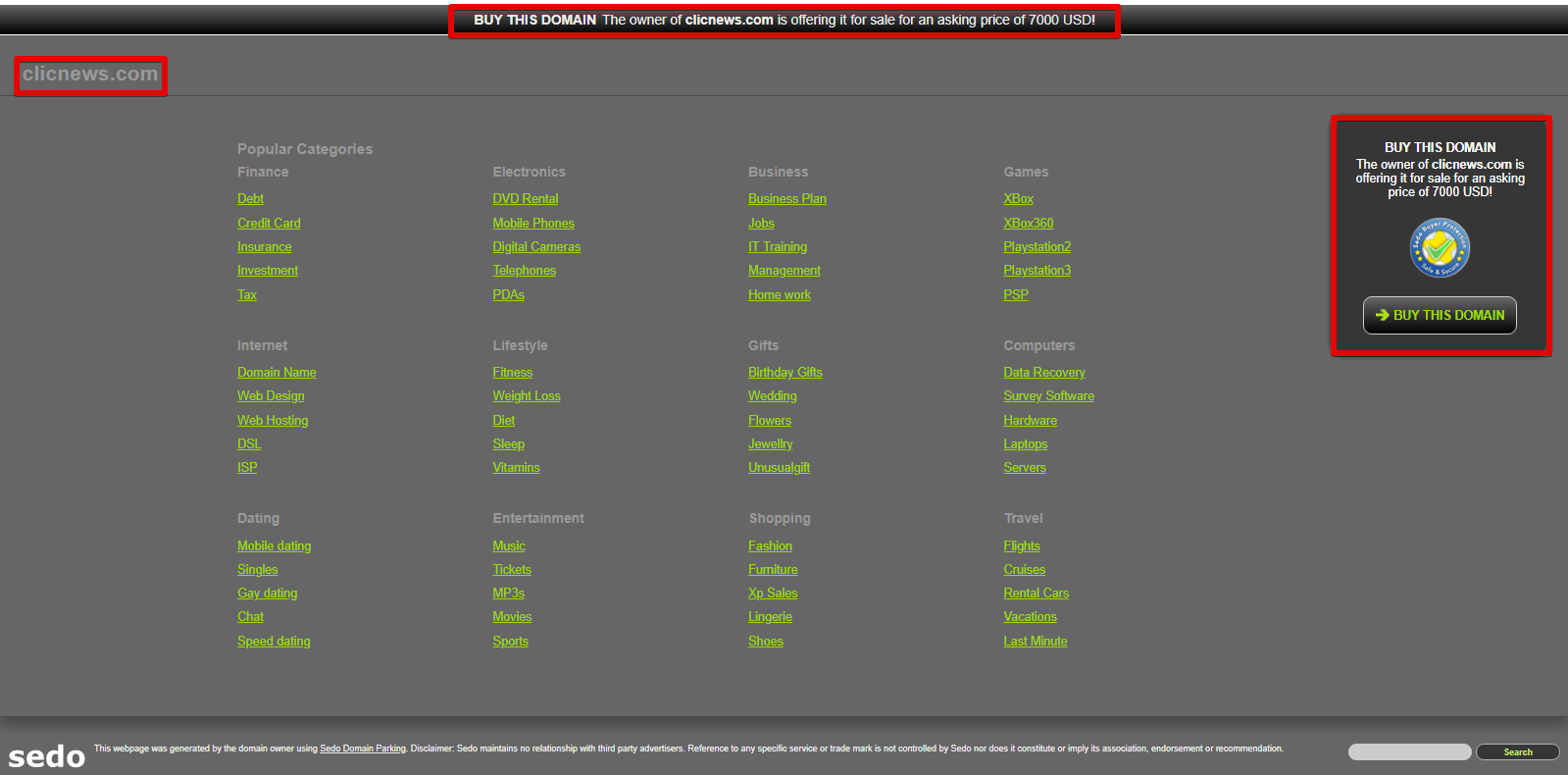Top Google Penalties. Is Google Trying to Kill SEO?
12 March 2018 Leave a comment ALL-HANDS SEO
“Successful SEO is not about tricking Google. It’s about PARTNERING with Google to provide the best search results for Google’s users.” © Phillip Frost
Google Algorithm has always been a burden for many websites. Almost every month Google rolls out new updates which may badly affect SEO; as a result, many sites are getting penalized by Google. That is why you may find plenty of articles considering do’s and don’ts, analyzing Google’s policy, and providing remedies on how to recover from these turnarounds.
RankActive is not going to create another piece of content explaining the ways to improve search optimization. In this article, we’d like to encompass all known Google upgrades and top mistakes leading to Google’s penalties.

Google Search Algorithm is aimed at defining whether a page deserves to be well-ranked. Google’s priority, at least that’s what they claim, is providing relevant content to users.
GOOGLE PANDA UPDATE
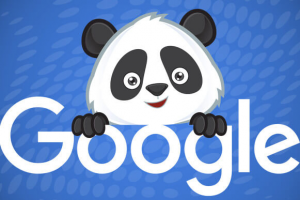
- Date: February 24, 2011
- Goal: Combating Irrelevant Content
Originally, Google Panda was just a minor update within Google policy. Nowadays Google Panda Update plays a significant role in the Google Algorithm. On February 24, 2011, Google published an article that explained the main aim of Panda:
“This update is designed to reduce rankings for low-quality sites — sites which are low-value add for users, copy content from other websites or sites that are just not very useful. At the same time, it will provide better rankings for high-quality sites — sites with original content and information such as research, in-depth reports, thoughtful analysis and so on.”
What are the Main Reasons to be Affected by Google Panda Update?
► Automatically Generated Content. Content consisting of random text.
► Content Mismatching a Search Query. Pages don’t give relevant answers to queries. They also trick users to click on a picture to get what they search for, but they are transferred to an empty page or page with ads.
► Duplicate Content. Copied content appearing on different websites, or plagiarism.
► Content Farming. A piece of content written by many freelance writers which can be found on many websites and social media. Content farming is usually considered as spam.
► Low-quality User-generated Content (UGC). Content full of spelling mistakes.
► Ad Content. A massive amount of ads instead of original content.
As Panda became a major tool for a site’s rankings, the update changes on a monthly basis. From Google’s standpoint, pages with irrelevant content are against their policy.
GOOGLE PENGUIN UPDATE

- Date: April 24, 2012
- Goal: Enhancing Links’ Quality
As Panda Update is focused on low-quality and irrelevant websites, Penguin Update is all about the quality of links. Google Penguin Update gives penalties for:
► Link Schemes. Purchase of backlinks from low-quality websites to improve website’s rankings in SERP.
► Spammy Links. Type of links on your website leading to spammy sites and the opposite – spammy links referring to your site.
► Keyword Stuffing. Massive keywords repetition to trick someone’s perception of the site. Here is the Google’s example of keyword stuffing:
We sellcustom cigar humidors. Ourcustom cigar humidors are handmade. If you’re thinking of buying acustom cigar humidors, please contact ourcustom cigar humidor specialists atcustom.cigar.humidors@example.com.
During several years, Google Penguin Update expanded continuously, but Google stopped enlarging the update after launching Penguin 4.0 & real time on September 23, 2016. Pages will be tested by Penguin as part of the regular process. Here’s how Google announced new changes:
“With this change, Penguin’s data is refreshed in real time, so changes will be visible much faster, typically taking effect shortly after we recrawl and reindex a page. It also means we’re not going to comment on future refreshes.”
It implies that pages are tested by Penguin as the part of the regular process without announcing new changes.
GOOGLE HUMMINGBIRD UPDATE
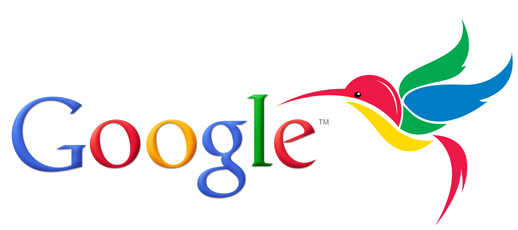
- Date: August 30, 2013
- Goal: Providing Relevant Results for Queries
Google Hummingbird Update was one of the most significant updates launched by Google. In fact, it’s been playing a great role in enhancing the core algorithm since 2001.
Hummingbird isn’t as scary as many users expected after Panda and Penguin updates. On the contrary, Hummingbird Update is responsible for:
► Quick and Useful Results for Queries. One of the most effective options of this feature is providing various search results related to a query.
► Understanding Synonyms and Dividing Content by Subject. If you put “ginger cookies” in a search line, you will get relevant results of your query: recipe, related search, synonyms, directions, etc.
It’s necessary to note that most people in the SEO industry weren’t badly affected by the Hummingbird Update.
GOOGLE PIGEON UPDATE
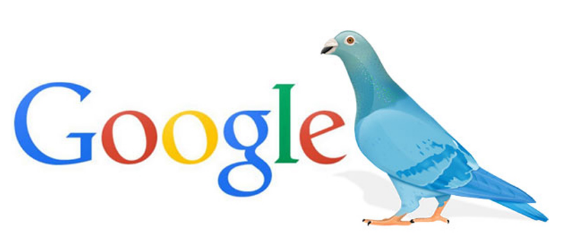
- Date: July 24, 2014
- Goal: Providing Local Organic Results
With this upgrade, local search has become more important, and Google’s update took the local search to a new level of accuracy and efficiency. The Pigeon was described as the largest local upgrade since the 2012 Venice update.
Pigeon Update tied organic search with the core algorithm by implementing several new alterations:
► Local Businesses’ Distance and Location. The search radius was narrowed according to a query. For instance, if a person puts “seafood restaurant,” the search process will narrow the general results and provide the nearest location.
► Biggest Outcome – from 7-pack to 3-pack Local Results. Before the update, Google Search showed 7 different results regarding a query, but with the Pigeon Update, the local results now consist of 3 packs, which takes some businesses to the top.
► The Use of Leads and Conversions. For example, “Call Now” or “Get Directions.” You even can check out the menu out or book a table by clicking on site’s link.
Google Update not only changed rankings of many businesses but also provided users with the information they wanted at once. Google Pigeon Update is aimed to give the most relevant and useful results in a local setting by filtering a certain radius and relevancy to a user’s search.
GOOGLE MOBILE-FRIENDLY UPDATE
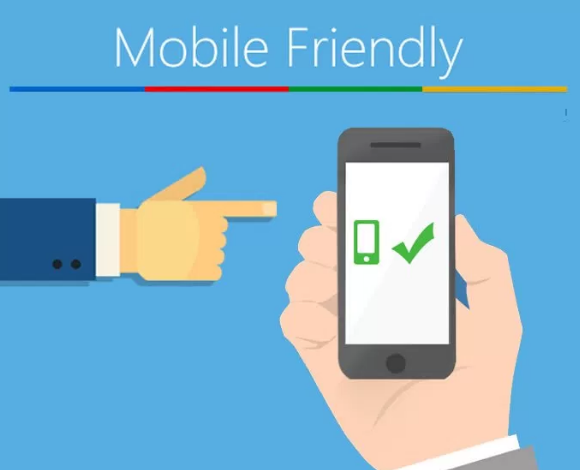
- Date: April 21, 2015
- Goal: Mobile Usability And Efficiency
We won’t go into details about mobile-friendly page as RankActive has already explained its principles and features. Simply put, the mobile version will be the biggest priority for rankings after the upcoming Mobile-First Indexing. Test whether your mobile content is mobile-friendly or not, and change mobile content if you need to improve it according to Google’s remarks.
FRED & MACCABEES

- Date: March 8, 2017/December 12, 2017
- Goal: Removal Of Heavy, Spammy Ad Contents
Despite the fact that Fred wasn’t confirmed as an official update (until March 24), many SEO experts and websites owners were badly affected by this new update.
Later that year, Google confirmed the inheritor of Fred – Maccabees. The main objective of these two upgrades lies in decreasing and removing low-quality websites with tons of spammy ads along with improving the relevance of pages. RankActive has already analyzed the Maccabees Update which complements its ancestor Fred.
Top Mistakes Leading To Downfall
Previously we have reviewed all major Google Updates. Every article throughout the network tells us: “How To Avoid Google Updates?”, “Ways to Recover from Collapse,” “What Should I Do To Save My Site’s Rankings?”, etc.
Over the past years, Google didn’t penalize websites overnight. They could withhold benefits or roll out updates which wouldn’t wipe your site out.
The latest upgrade – the Maccabees Update – turned the whole image into disaster. Thousands of websites were affected, and it leads to the red point: why Google became so vindictive? So, why would Google blacklist a website?
► Buying Links. Purchasing or selling spammy links may dramatically affect your website. Many webmasters are certain that Google will never catch them as they buy intermediary links and create so-called “link wheels” or “link pyramids.”
- Link wheel is a SEO strategy referring to a network of sites linked to the following site in the wheel. For example, having 6 sites from A to F, A links to B, B to C, C to D, D to E, E to F, and F would back to A. All of these sites would link to the “money page,” which is your website.
- Link Pyramid is a SEO tool consisting of three or four tiers with the top tier “money page.”
► Duplicate Content. Many users think they can trick Google by copying content from various sites. It’s like a circle of collecting the same information which will eventually lead to Google penalty. Plagiarism is considered to be one of the worst things; hence, the duplicate content immediately disappears in “Google’s eyes.”
► Broken External Links. “Oh God! Again links?” – you’ll ask. Broken Links are unnatural. Apparently, it’s the case when a website owner doesn’t care about up-to-date links.
► Keyword Stuffed Content. Keywords are the largest part of SEO, but overusing always leads to terrible results. Some websites use the same keywords to attract a user’s attention. But, in fact, their description or content mostly consists of repetitive keywords which can badly affect site’s rankings. For example:
Keyword stuffed contentis bad for SEO. Do you know whykeyword stuffed content is a disadvantage? Becausekeyword stuffed contenttries to trick Google to get more search responses. Therefore, Google will penalize websites with keyword stuffed content instantly.
► Malicious Behavior. Once a user enters a website, viruses or trojans will be installed on the device. There’s a list of some of the “dirtiest” websites:
17ebook.com
aladel.net
bpwhamburgorchardpark.org
clicnews.com
dfwdiesel.net
divineenterprises.net
fantasticfilms.ru
gardensrestaurantandcatering.com
ginedis.com
gncr.org
Some of these websites are dangerous, and some of them even try to sell their domains:
► Website’s Timing. When a loading time is long, everyone gets annoyed: a user, a search engine, and consequently, a webmaster. If a website loads for a long time, Google would rather stop sending users to the dead end.
► Flashy Ads. Advertising is fine unless all website’s content consists of prominent ads. It should be the second concern while a relevant content should the first one. That’s why Google rolled out Fred and Maccabees Updates.
We can keep on giving more and more examples of websites getting penalized by Google. In fact, there are many other reasons to be punished, destroyed, and banned for.
Sometimes it’s impossible to notice all negative changes within a website, but Google is getting smarter every year. Perhaps, Google will roll out new upgrades to cause the demolition of many websites, but the real question is:
Is Google Trying to Kill SEO?
We have no right to tell “yes” or “no” as this question has always been controversial. Some experts may say that Google is against SEO referring to “search engine manipulations.” SEO enthusiasts always try to manipulate Google by using link farms, flashy ads, buying links, etc.
We have explained so far all major updates from 2011-2017, and it’s clear that the original purpose has dramatically changed. For instance, Hummingbird and Pigeon were focused on enhancing search results for queries, but modern updates such as Fred and Maccabees caused a sharp drop in traffic overnight. We would say that Google isn’t trying to kill SEO itself, but they are trying to shut down search engine manipulations.
Conclusions
Google plays a great role in altering SEO in various ways. Furthermore, it’s necessary to know that SEO continually undergoes changes and there’s no way avoiding it.
Some updates make great changes to the core algorithm, but some of them can only decrease their rankings, change their positions in SERP, and lower traffic almost instantly.
A small reminder: we don’t want to provide another list of “top ways to get a recovery” as there are plenty of them all over the net. We just wanted to highlight these crucial moments, which may put your site into decline. We hope that now you have a total perception of do’s and don’ts regarding SEO manipulations, and Google’s policy to change the situation.
To get relevant rankings and a good reputation in SERP, it’s good to cooperate with Google. Be aware that Google Algorithm can change overnight, so you should adjust to all Google’s turn-ups.
Tags:
Like this article? There’s more where that came from.
- YouTube Hacks Your Online Marketing Agency Can Implement to Boost Video Rankings
- When Less is More: Why We Decided to Remove Backlinks and Link Manager Features
- How to increase your CTR using Schema.org
- How to Get Out of Google Sandbox and Do It Quickly?
- Geolocation Redirect 101: How to Secure Your SEO Localization Efforts?
- Your Ultimate Guide to SEO Reporting with RankActive
- Your 7-Step Guide to Increasing Page Speed
- How to Do SEO Competitor Analysis? Your Checklist for 2019


